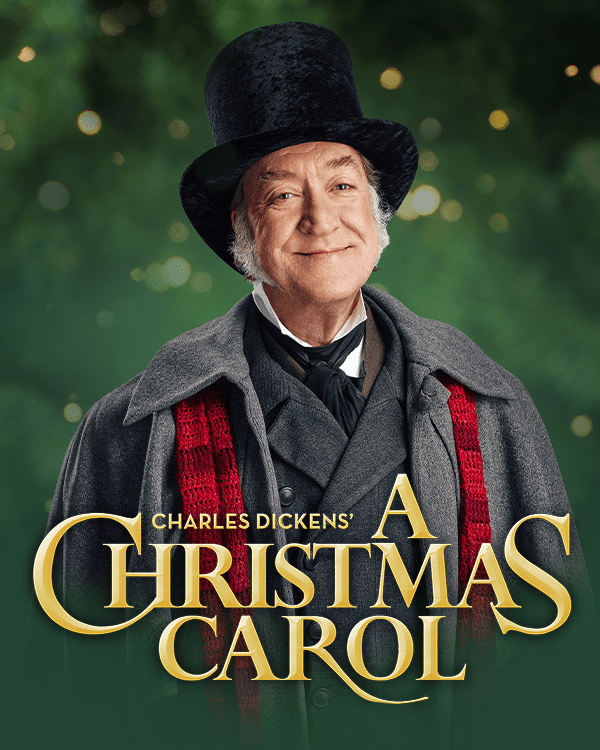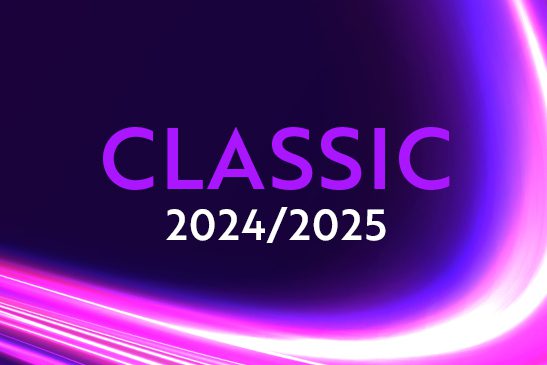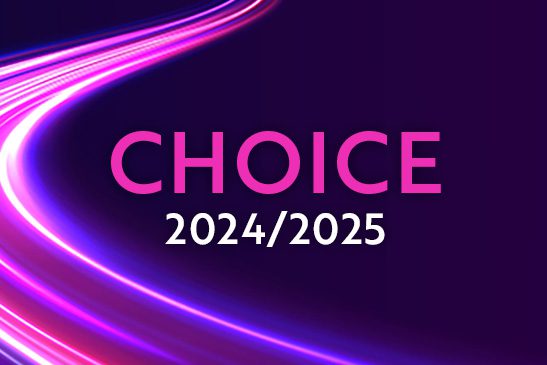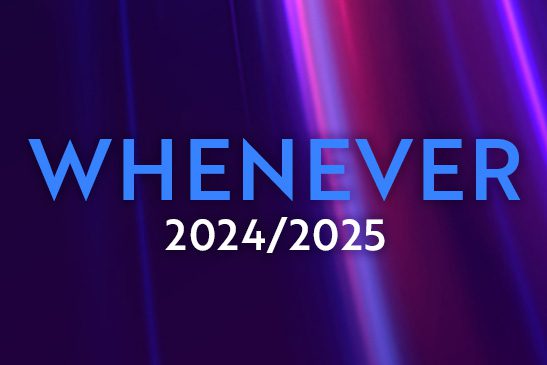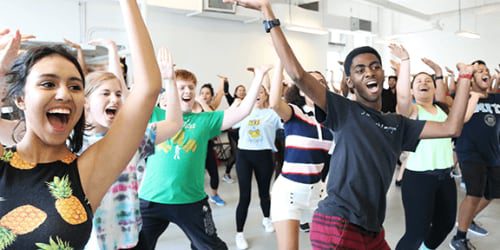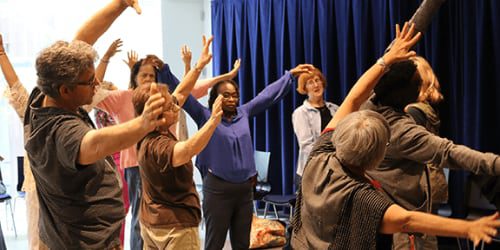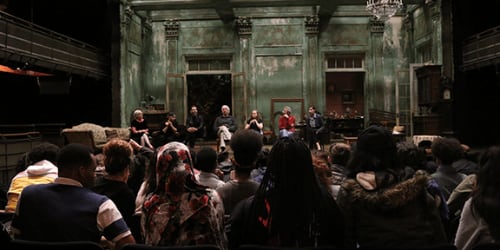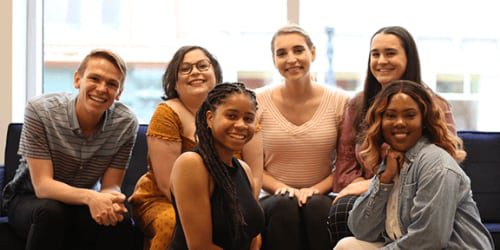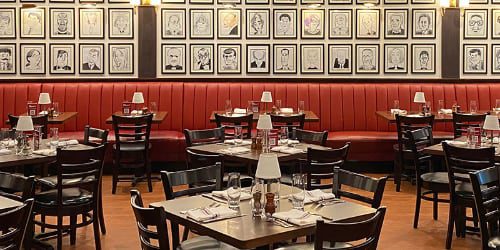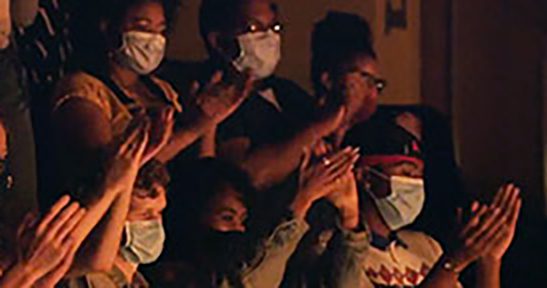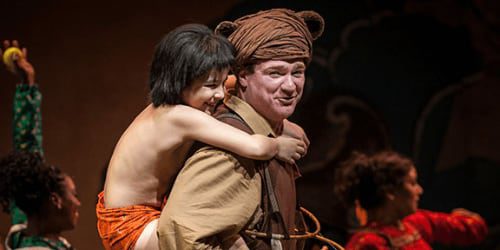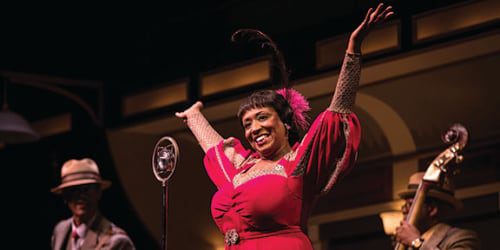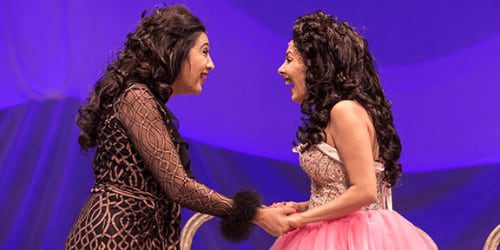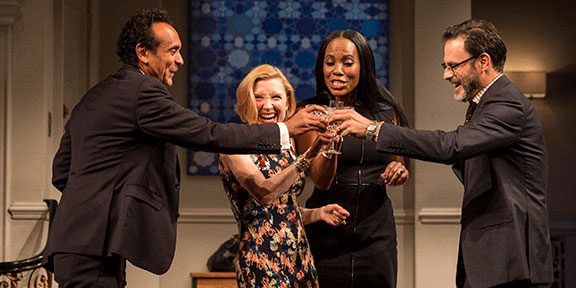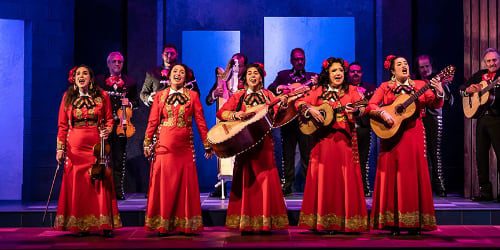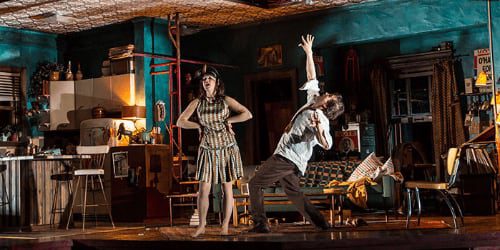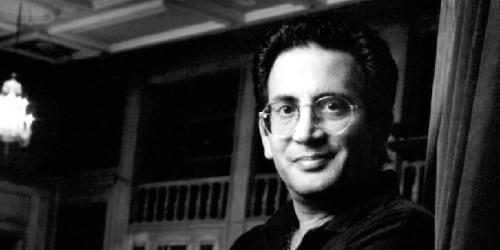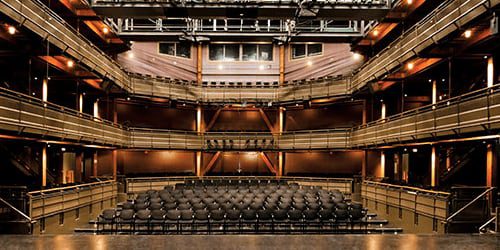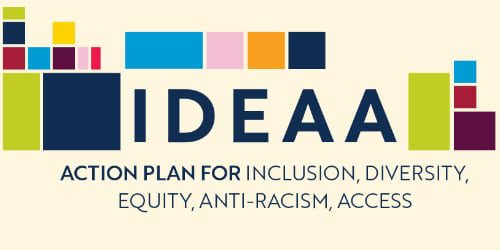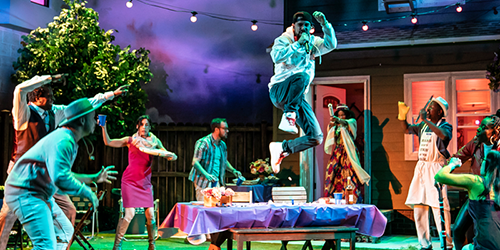Apply for the new stages Residency
New Stages Residency
Goodman Theatre’s New Stages Residency is a year-long program for Chicago-area generative theater artists. Established in 2010, the program supports up to three theatrical projects each season, with selected artists meeting bi-monthly with the Goodman’s artistic staff and other cohort artists. Each project is awarded $7,000 and receives mid-point and final readings at the Goodman, as part of its development journey. Cohort members are also considered artists-in-residence at the theater: they are invited to opening nights, meetings, rehearsals and special events as available.
The New Stages Residency has expanded guidelines from the Playwrights Unit, and will consider any of the following types of project proposals:
- Single-author works and multiple-author works
- Non-musical and musical works (including both traditional musicals and plays with music)
- Works of different generative modalities
- Works in progress
Additionally, we are considering proposals from former members of the Playwrights Unit or New Stages Residency.
Eligibility:
Applicants must:
- be based, at least in part, in the Chicagoland area.
- be available to meet at the theater in person twice a month during business hours.
- be available for a workshop and reading of their piece in June 2025.
- have had at least one fully-produced play and/or have substantial experience in the development of new theatrical work.
If submitting a multi-author proposal, at least one member of the writing team must meet each of the above qualifications.
Women, writers of color, trans and non-binary writers, and writers with disabilities are strongly encouraged to apply.
Applications for the New Stages Residency are now open. The deadline for applications is June 21, 2024, at 5 PM CT. Decisions will be made and all applicants will the notified of the status of their proposal by late August 2024.
Applicants should send the following to literary@goodmantheatre.org:
- An introductory statement (approximately 500 words) that includes:
- A description of the new work you are proposing to create and develop during your time as a Resident.
- Why and how your proposed project would benefit from the New Stages Residency process as described on this page (see further description in the FAQ below). If it is a piece in progress, be specific about how monthly cohort meetings can further this work’s development.
- Any additional needs you anticipate for the development of your specific work in a cohort setting.
- A professional resume reflective of your artistic practices, including any plays written and produced, and any other experiences or details you would like to share with us.
- A 10-page sample of a work you created in the last year or two that you feel best reflects your voice and current interests as an artist and/or a link to up to 10 minutes of video or audio of a past work. If your proposal is selected as a semi-finalist, we will request additional materials, which may include a full manuscript.
Multi-author proposals should submit only one application package. This should include a jointly written introductory statement, a resume for each author, and a work sample representative of each author (which could be a single past work authored by the same writing team or individual works by each author).
FAQS:
- What can I expect from a Residency meeting?
- Typically, two projects will share pages or other materials during each three-hour meeting. Meetings are attended by the Goodman artistic staff members and the other cohort members, who will read, listen to, and discuss pages. Please be mindful, if submitting a work that involves music, you will receivefeedback from other artists who may not read sheet music or share your musical vocabulary.
- When and where are Residency meetings?
- Residency meetings typically last three hours and are scheduled twice a month, between the hours of 10 AM and 6 PM. Meetings ideally occur in-person at the Goodman Theatre (170 N Dearborn St), though accommodations can be made for hybrid meetings in extenuating circumstances. At this time, we are not able to provide travel funds to and from the theater for meetings.
- How do you define “fully-produced play?”
- Fully-produced productions can include both professional and academic productions.
- How is authorship shared in a multi-author proposal?
- It’s up to you – At the start of the Residency, co-authors will determine how they are credited and how the $7,000 fee is split.
- Who will be reviewing my application?
- We accept applications from generative theater artists. This could include playwrights, directors, choreographers, or other artists creating new work. Keep in mind that our process will be primarily text-based, so while we welcome work in a range of disciplines and styles, our cohort-style meetings may not be the best fit for every piece’s development needs.
- Can I submit a work in progress?
- Yes, provided that you anticipate generating substantive new material on a monthly basis. While we are open to works in progress, this Residency is not intended as a workshop environment for fully written works. If you are applying with a work in progress, please specify where you are with the piece, what you are working towards, and how monthly cohort meetings in which you present new material will advance the development of your piece.
- Will the Goodman produce my piece?
- The goal of the New Stages Residency is primarily developmental, offering time, support, and resources for the early growth of a new work. We ask for a right to option further development of each project at the Goodman, but a successful residency will focus on advancing a project towards production in Chicago and across the country.
- Who will be reviewing my application?
- The evaluation includes members of the Goodman artistic staff, current and previous New Stages Residency/Playwrights Unit members, members of the Goodman Artistic Collective, and current and former Maggio Directing Fellows and Northwestern Directing Fellows.
If your question is not answered here, please send inquiries to literary@goodmantheatre.org
